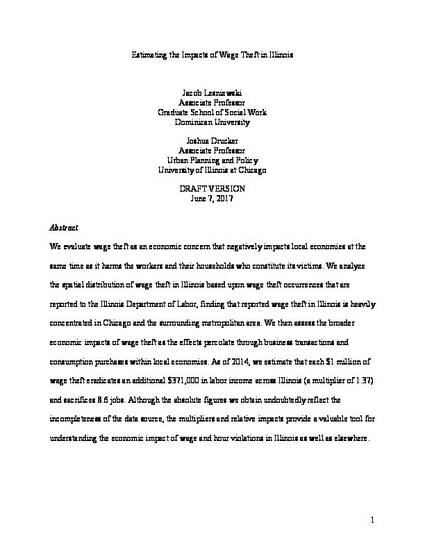
Unpublished Paper
Estimating the Impacts of Wage Theft in Illinois
(2017)
Abstract
We evaluate wage theft as an economic concern that negatively impacts local economies at the
same time as it harms the workers and their households who constitute its victims. We analyze
the spatial distribution of wage theft in Illinois based upon wage theft occurrences that are
reported to the Illinois Department of Labor, finding that reported wage theft in Illinois is heavily
concentrated in Chicago and the surrounding metropolitan area. We then assess the broader
economic impacts of wage theft as the effects percolate through business transactions and
consumption purchases within local economies. As of 2014, we estimate that each $1 million of
wage theft eradicates an additional $371,000 in labor income across Illinois (a multiplier of 1.37)
and sacrifices 8.6 jobs. Although the absolute figures we obtain undoubtedly reflect the
incompleteness of the data source, the multipliers and relative impacts provide a valuable tool for
understanding the economic impact of wage and hour violations in Illinois as well as elsewhere.
Keywords
- wage theft,
- labor,
- Illinois,
- economic impact
Disciplines
Publication Date
2017
Citation Information
Jacob Lesniewski and Joshua Drucker. "Estimating the Impacts of Wage Theft in Illinois" (2017) Available at: http://works.bepress.com/jdrucker/36/
